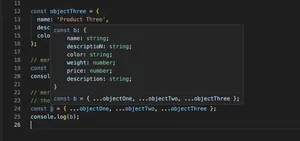Overview
TypeScript enhances JavaScript development by allowing for strong typing and compile-time error checking. By using the ‘noEmitOnError’ flag, developers can streamline their workflow to ensure that runtime issues are minimized.
Understanding TypeScript Compilation
TypeScript is a statically-typed superset of JavaScript that compiles down to plain JavaScript. The TypeScript compiler, tsc, becomes a critical tool in this process. Typically, you can compile a TypeScript file using the following command:
tsc file.tsThis generates a corresponding file.js that you can then include in your webpages or use in your Node.js projects. By default, TypeScript compiles files even if there are errors in the code, which may lead to bringing these errors into runtime.
Using the ‘noEmitOnError’ Flag
You can instruct the TypeScript compiler not to emit output (like JavaScript files) when there are compilation errors, by using the noEmitOnError flag:
tsc --noEmitOnError file.tsThis is particularly useful when you want to enforce strict type-checking and error handling as a part of your build process.
Enabling ‘noEmitOnError’ in tsconfig.json
Instead of passing this flag every time on the command line, you can add it to your tsconfig.json file:
{
"compilerOptions": {
"noEmitOnError": true,
...
}
...
}With this configuration, any TypeScript compilation as part of your project would adhere to this rule without requiring additional flags.
Case Study: Compiling with Errors
Let’s look at a simple example where a TypeScript file has an intentional type error:
function greet(name: string) {
console.log('Hello, ' + name);
}
greet(42); // Error: Argument of type 'number' is not assignable to parameter of type 'string'.
Compiling this with the noEmitOnError flag will not create a JavaScript file due to the type error. This prevents potential runtime errors associated with this incorrect type assignment.
Advanced Usage
Developers can combine the noEmitOnError flag with other TypeScript compiler options for more control over the build process. For example, when integrating with build automation tools like Webpack or Gulp, ensuring no erroneous files are emitted can be crucial for maintaining a high-quality code base.
Integrating with Build Tools
In a Webpack configuration, you might use ‘ts-loader’ and specify the noEmitOnError within the loader options:
module.exports = {
//...
module: {
rules: [{
test: /\.ts$/,
use: 'ts-loader',
options: {
compilerOptions: {
noEmitOnError: true
}
}
}]
}
//...
};
This ensures that the build process halts if TypeScript compilation fails, giving feedback to developers before proceeding.
Unit Testing with ‘noEmitOnError’
The same principles can be applied to unit testing frameworks. By configuring your TypeScript compiler within your test setup to use the noEmitOnError flag, you can catch errors early in the development cycle:
/* In your test configuration */
{
"compilerOptions": {
"noEmitOnError": true,
...
}
}
Unit tests will not run if the code has compilation errors, reinforcing the need for resolving type inconsistencies or other issues before considering the code passing.
Best Practices and Tips
When working in a team or on large projects, it’s advisable to use the noEmitOnError flag to maintain code quality. Additionally:
- Integrate the
noEmitOnErrorin your continuous integration (CI) pipeline to catch errors as part of automated checks. - Understanding the detail of errors that the compiler flags can greatly improve your TypeScript proficiency and help you write more robust code.
Conclusion
The ‘noEmitOnError’ flag is a powerful feature in TypeScript that helps you ensure code accuracy and reliability. By incorporating this into your development process, you create a solid foundation for writing error-free applications that perform as expected across various environments.
